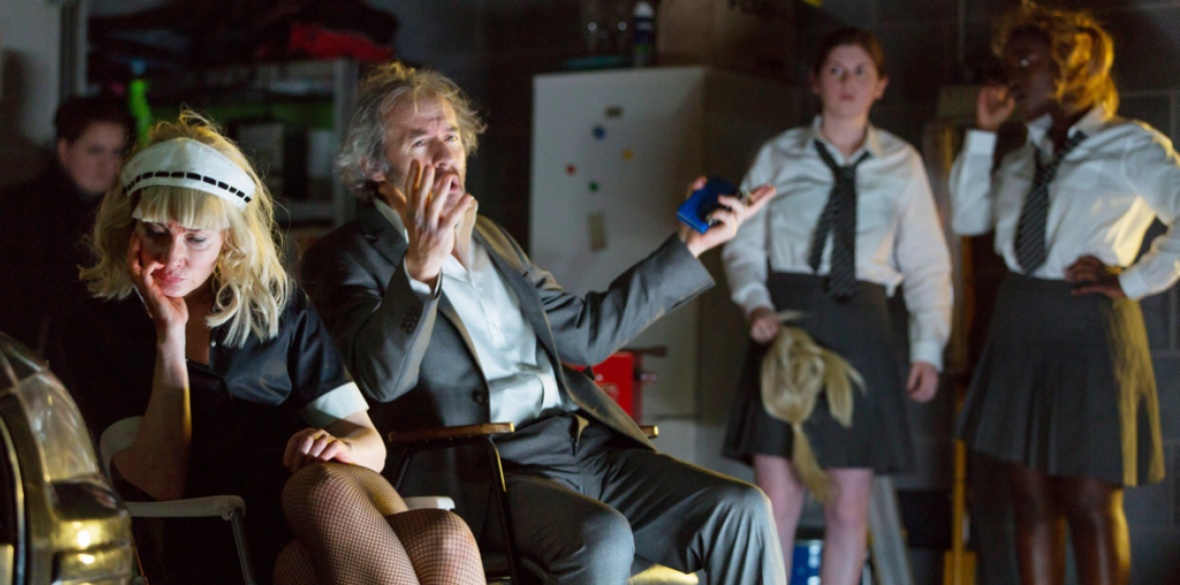This is the last article you can read this month
You can read more article this month
You can read more articles this month
Sorry your limit is up for this month
Reset on:
Please help support the Morning Star by subscribing here
When We Have Sufficiently Tortured Each Other
National Theatre, London
“EXTREME sex and violence” warns the hype for this new play by Martin Crimp at the National and there’s even a notice on the door about its “shockable” nature as you go in.
So you enter braced for pornography, albeit with a lead performance by none other than the great Cate Blanchett.
And she is magnificent. While displaying all the “infinite variety” of a modern Cleopatra, she holds the attention endlessly, with her face, voice, body and essential substance totally at her command. Sometimes a soft yielding girl, at others she’s the dominant male.
Occasionally clear and articulate, at other moments she’s lost in anguish. She can be old, young, beautiful and plain almost without the intricate and complex costume changes that are central to the play and her performance is remarkable.
But something is missing. Based on Samuel Richardson’s lengthy 19th-century novel Pamela about a young woman servant pursued, abducted and eventually wed to her domineering master, the play is primarily an exploration of power in all its guises, with particular attention to the centrality of sex and gender politics in all power games.
At the start, when Blanchett as Woman and an equally uninhibited Stephen Dillane as Man are poised for what we expect to be a sexual encounter in the front seat of a car, we’re treated instead to a debate on who holds the upper hand.
“All you do is talk,” she says. And there’s the key. For it’s the words that define this play and because the characters are socially indefinable – and representative rather than real – it becomes a dry discourse even against the backdrop of the mesmerising imagery provided by director Katie Mitchell with designers Vicki Mortimer (set) and Sussie Juhlin-Wallen (costumes).
The sleazy lock-up garage of the set seems for a conventional orgy. Sexual imagery is ever-present, and while Dillane in black stockings and suspenders may pander to the traditional, Blanchett transforming her garb from slinky black silk to fairy-tale wedding dress is memorable in representing woman in all her ambivalence.
While more explicit and daring sexual images follow, it’s the complexity of power – not least the dominance of money — that is the theme. And this fails to convince when Dillane’s Man talks of power but demonstrates none.
There’s a lovely, clearly defined performance from Jessica Gunning as the housekeeper Mrs Jewkes and it’s great to see Blanchett on the London stage.
The play, though, is more theory than engaging drama.
Runs until March 2, box office: nationaltheatre.org.uk.












